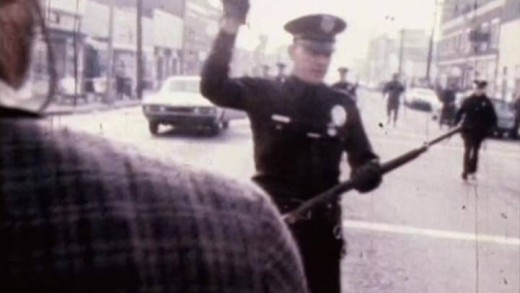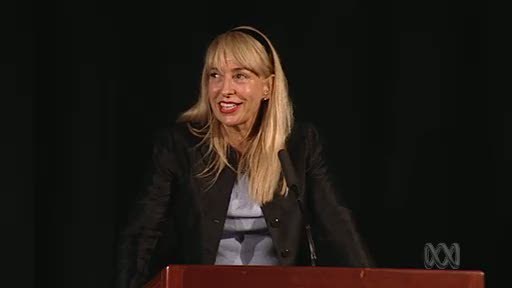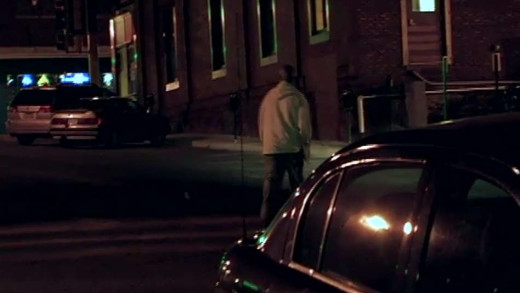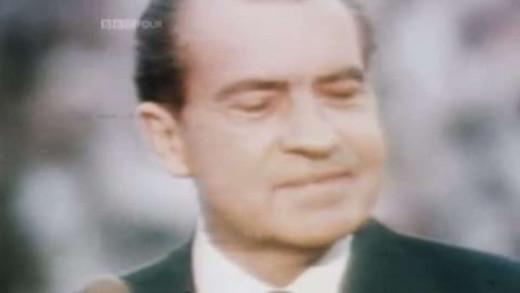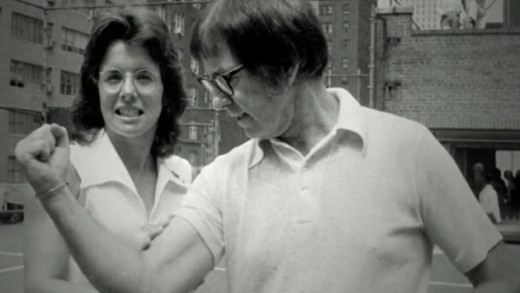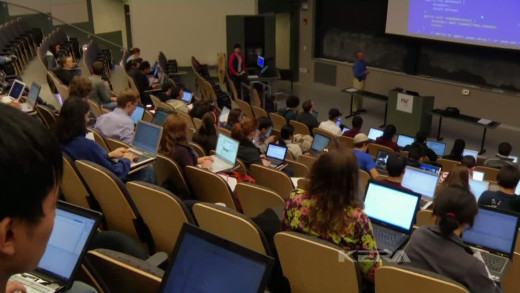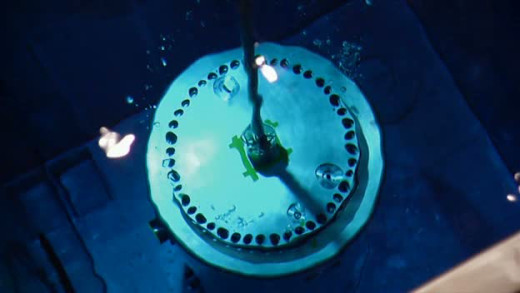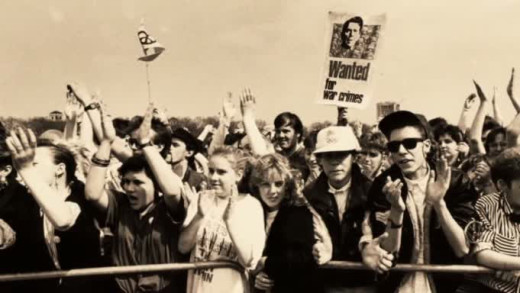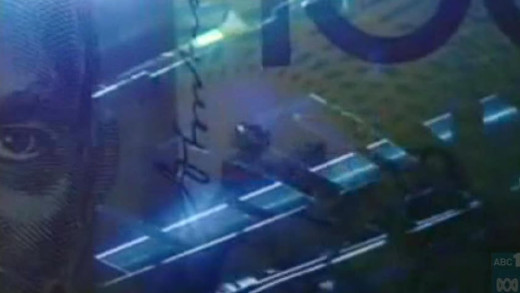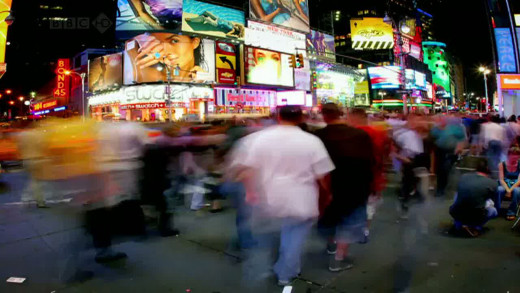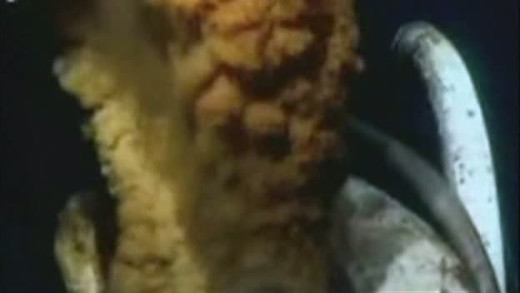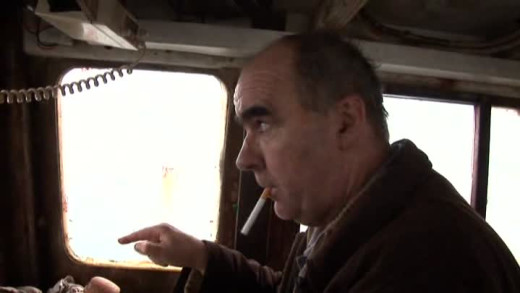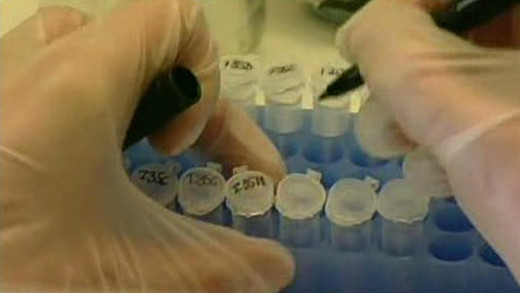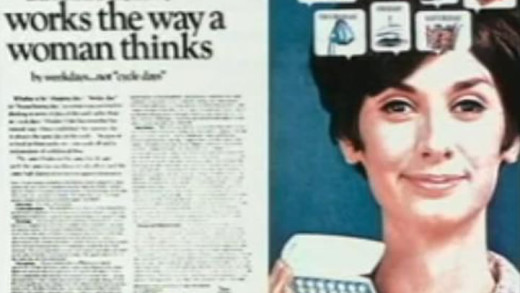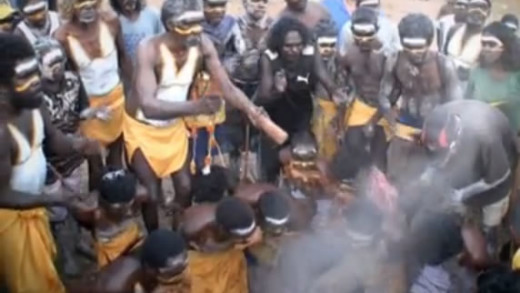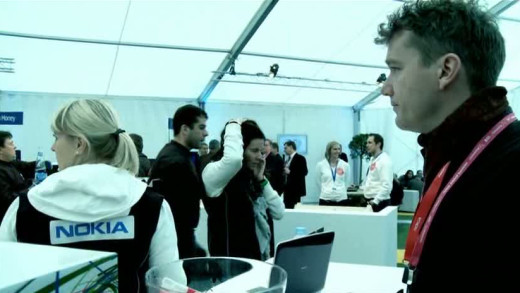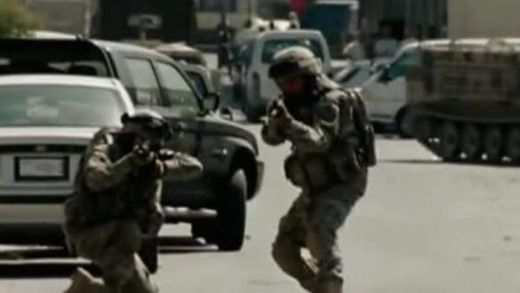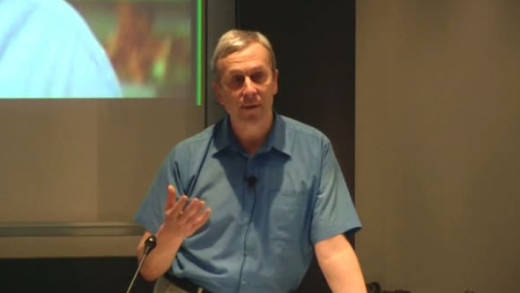A secret illegal project from the 1950s, 60s and 70s called COINTELPRO, represents the state's strategy to prevent resistance movements and communities from achieving their ends of racial justice, social equality and human rights. The program was mandated by the United States' FBI, formally inscribing a conspiracy to destroy social movements, as well as mount institutionalised attacks against allies of such movements and other key organisations. Some of the goals were to disrupt, divide, and destroy movements, as well as instilling paranoia, manipulation by surveillance, imprisonment, and even outright murder of key figures of movements and other people. Many of the government's crimes are still unknown. Through interviews with activists who experienced these abuses first-hand, COINTELPRO 101 opens the door to understanding this history, with the intended audience being the generations that did not experience the social justice movements of the 60s and 70s; where illegal surveillance, disruption, and outright murder committed by the government was rampant and rapacious. This film stands to provide an educational introduction to a period of intense repression, to draw many relevant and important lessons for the present and the future of social justice.
Neuroscientist Professor Susan Greenfield says today's developing brain is being worryingly reshaped by excessive visual stimulation -- the effect of a culture driven by screens. Biotechnology, nanotechnology, even the internet are all impacting on our brains and could be heralding future generations with different abilities, agendas and even ways of thinking. Her prediction is that we might be standing on the brink of a cataclysmic mind-makeover never before seen...
With economic collapse besieging the United States, domestic violence statistics show a sharp increase in violence against women. States are closing shelters and cutting support programs, and the culture ignores domestic violence, except when celebrities are involved on TV. In the meantime, more spouses have been killed by their partners in the past several years than soldiers have been killed in Iraq. Power and Control addresses this life and death issue during a time of urgent crisis, a timely and comprehensive exploration of physical and emotional abuse in dominant culture, as refracted through the story of Kim Mosher, a mother of three who has recently left her abusive husband. As Kim and her fragile daughters take up residence in a domestic violence shelter, the film follows the harrowing struggles in a single-parenting survivor's quest to find work, housing and peace of mind. We also meet Kim's husband, Josh, himself a survivor of abuse. His attempts to explain his behaviour are troubling--shocking in the context of the story's final twist. The multi-level narrative also examines the root causes of domestic violence and the solutions that have evolved to stop it, celebrating the battered women's movement activists who demanded revolutionary change in the 1980s, and examining alternative approaches now being advocated.
This film provides some insights into the plight of Omar Ahmed Khadr, a Canadian citizen, who was fifteen years old when he was taken by United States forces in Afghanistan in 2002 to be interrogated, tortured, and sent to Guantánamo Bay. Based on seven hours of CCTV footage recently conceded and declassified by Canadian courts, You Don't Like The Truth offers a dark, yet officially-sanctioned view into the sadistic world of today's intelligence agencies and the secret operations in the War-of-Terror.
It's been described as the boom that keeps on giving -- an export bonanza that will help Australia ride through a world-wide economic downturn. All across Australia, workers have left their jobs to make big money in the mining industry. In the rush to exploit vast natural resources, employers have all but set aside the idea of building and supporting communities, instead they pay big wages to fly-in, fly-out; drive-in, drive-out workers, encouraging them to work long shifts, leaving them with little reason to become part of a local community...
This short film uses the story of Richard Nixon's paranoia to explore how a similar outlook has been perpetuated on the larger social scale by the new media age. Skimming through the evolution of the mainstream media via television and newspapers, this short film comments on how politics has been paralysed by a media that has taken serious threats and sensationalised them, resulting in political cynicism and disengagement, which in-turn feeds a viscous cycle of nihilism and further sensationalist politics and media.
The Dark Side Of Chocolate follows a team of investigative reporters into Africa where human trafficking and child labour fuel the chocolate industry worldwide. The film travels to Mali where hidden footage reveals the trafficking of small children to the cocoa fields in the neighbouring Ivory Coast and elsewhere. What is happening behind the sweet imagery of the chocolate industry?
We've been told again and again that sports and politics don't mix, that games are just games and athletes should just "shut up and play." But Not Just a Game argues that far from providing merely escapist entertainment, American sports have long been at the centre of some of the major political debates and struggles of our time. By tracing the good, the bad, and the ugly of American sports culture, Not Just a Game shows how American sports have glamorised militarism, racism, sexism, and homophobia; but also traces a largely forgotten history of rebel athletes who stood up to power and fought for social justice beyond the field of play.
"Quants" are the mathematicians, software developers and computer programmers at the centre of the global economy. These are the people who designed the "complex financial products" that caused the financial crisis of 2008. Here they speak openly about their game of huge profits, and how the global economy has become increasingly dependent on mathematical models that quantify commodified human behaviours to the point of insanity. But things don't stop there. Through the convergence of economy and technology, the Quants have now brought this model into the world of the machines, where trades are done at the speed of light, far from the realm of human experience. The machines are in charge. Some Quants are even now worried. What are the risks of this complex machine? Will the Quants be able to keep control of this financial system, or have they created a monster?
The Quantum Revolution spouts claims of turning many ideas of science fiction into science fact—from materials with mind-boggling properties like invisibility through to so-called "limitless quantum energy" and room temperature superconductors, to a space elevator for tourism. Are such developments worthwhile, sustainable, equitable or even necessary? Scientists forecast that in the latter half of the century everybody will have a personal matter fabricator that "re-arranges molecules to produce everything from almost anything." Yet how will those in power ultimately use the domination of matter and life on Earth? How is science already doing this and to what ends? What are the unasked questions about science itself and the desire to control the very fabric of the universe? What insanity are we up against?
Are we willfully trashing the planet in the pursuit of endless things? What's the source of the frenetic consumer energy and desire? In a fast-paced tour of the ecological and psychological terrain of consumer culture, Shop 'Til You Drop challenges the viewer to confront these questions head-on. Taking aim at the high-stress, high-octane pace of materialism, the film moves beneath the seductive surfaces of the commercial world to show how the other side of consumerism is depletion--the slow, steady erosion of not only the natural world, but basic human and community values. Shop 'Til You Drop contextualises the turbulence of this moment, providing an unflinching critique of the limits of consumerism and the so-called "pursuit of happiness."
Within a single generation, digital media, the Internet and the World Wide Web have transformed virtually every aspect of modern culture, from the way we learn and work to the ways in which we socialise and even conduct war. But is technology moving faster than we can adapt to it? Is our constantly-wired-world causing us to lose as much as we’ve apparently gained? In Digital Nation, Douglas Rushkoff and Rachel Dretzin explore what it means to be human in a 21st-century digital world...
Freakonomics is a segmented adaptation of the book by the same name, by Steven Levitt and Stephen Dubner about incentives-based thinking. The film presents segments to examine the theories of human behaviour and data mining presented in the book through case studies. Subjects include: the influence a person's name has on their personal and social development; corruption in an honor-bound sport such as sumo wrestling; what alleged factors lead to a statistical reduction in crime rates in the United States during the 1990s; and a school experiment to see if cash payments could incentivise students to get good grades. Through these examples and others, the film exposes the problems with data-driven economic incentive models, and the society obsessed with quantitative measuring and data, rather than a focus on quality of outcomes or even what the outcomes are.
Every day, the world over, large amounts of high-level radioactive waste is placed in interim storages which are vulnerable to natural disasters, human-caused disasters, and societal changes. In Finland, the world's first 'permanent' repository is being hewn out of solid rock--a huge system of underground tunnels that must last hundreds of thousands of years. Once the waste has been dumped and the ground is full of this waste, the land is to be sealed off with concrete and "never be opened again." Or so the builders of this dump can hope. But can they ensure that? How is it possible to warn future generations of the deadly waste that's left behind by this culture? How do we prevent future generations from thinking they have found the 'pyramids' of our time, mystical burial grounds, or hidden treasures? Into Eternity is a film about the insanity of nuclear power and the consequences that have impacts for hundreds of thousands of years.
By charting the history of the anti-war movement against the political backdrop of the atomic age, Beating The Bomb examines the current state of 'nuclear deterrence' brought about by the nuclear age stemming from the end of World War II, when the United States nuked Hiroshima and Nagasaki. Specifically, the anti-nuclear movement and the founding of the Campaign for Nuclear Disarmament in 1958 amongst others, fight for and end to the British Nuclear Weapons program, which from its inception, was closely tied to The Manhattan Project and still is to this day...
Dirty Money
In the late 1990s, the Reserve Bank of Australia thought it was on a winner. The bank had developed the technology to create polymer bank notes that it claimed rivalled paper money. So the Reserve Bank decided to set up a subsidiary company called Securency to sell the technology to the world. It had just one problem though—getting legitimate access to other central bank officials to pitch the idea. So instead, Securency decided to employ a shadow network of local "fixer agents" to make "connections" with relevant officials, lavishing them with prostitutes, cash, and bribing them into deals. Dirty Money is the story of this institutional corruption at the highest level of finance in Australia.
Is the world heading for a population crisis? Since 1950, the human population has more than doubled. What is the effect of this rapid growth on the environment? While much of the projected growth in human population is likely to come from the so-called "developing world," it is the lifestyle enjoyed by the West that has the most impact--in the UK consumers use as much as two and a half times their fair share of Earth's resources. This film examines whether it is the duty of individuals to commit not only to smaller families, but to change the way they live for the sake of humanity and planet Earth.
One year after BP's Deepwater Horizon rig exploded spewed a massive 170 million gallons of oil into the Gulf of Mexico, BP claims victory -- that most of the oil is gone. Investigative journalist Greg Palast sets off to test this claim in person and digs into the history of BP and similar incidents. Revealed is the corporations collusion with government, its strong political influence worldwide, along with the massive ecological impact of the BP explosion, set to last for decades...
The Pipe tells the story of the people in Rossport, Ireland which have taken on the might of Shell Oil building a pipeline through their community. But when these people look to the government to protect their rights, they find that the government protects Shell instead. The question then becomes: what do people do, when the law prevents them from protecting themselves?
Hypothesis
In 2005, a physics professor named Steven Jones published a paper of a scientific hypothesis regarding the free-fall speed collapse of 3 buildings on September 11, 2001—the twin towers, and the collapse of World Trade Center building 7 which was not hit by a plane. He proposed based on obvious observations of the collapse, alongside direct evidence of the use of incendiaries, that the only way for all buildings to have collapsed the way they did was in a controlled demolition of some kind. Faced with scientific evidence challenging official reports, what ensued was a firestorm—Jones received hate mail, threats, muddled media attention, and even offers of bribes to stop his research. Why was this information so thoroughly reviled? And why such scientific evidence ignored and further inquiry suppressed?
A failed GM cotton crop prompts farmer suicides in India. Windborne GM canola contaminates organic and conventional farms in Canada. One farmer fights Monsanto in the Supreme Court. A company seeks approval for giant GM salmon that may threaten the survival of the natural species. GM pigs are born with ghastly mutations. And experts reveal how inadequate testing and regulations put us at risk. Featuring interviews with Vandana Shiva, Andrew Kimbrell, Percy Schmeiser and others, this documentary reveals several harsh consequences of genetic engineering worldwide...
First Life follows David Attenborough on a journey to unconver some of the origins of life on Earth. He investigates the evidence from the earliest fossils, which suggest that complex animals first appeared in the oceans around 500 million years ago, an event known as the Cambrian Explosion. Trace fossils of multicellular organisms from an even earlier period, the Ediacaran biota, are also examined. Attenborough then travels to Canada, Morocco and Australia, using some of the latest fossil discoveries and their nearest equivalents amongst living species to reveal what life may have been like at that time.
For more than three decades, transnational corporations have been busy buying up what used to be thought of and known as unbuyable--forests, oceans, public broadcast airwaves, important intellectual and cultural works. Before their commodification, these commons were recognised as things in common to all people, for the benefit of all people. In This Land is Our Land, author David Bollier confronts the free-market extremism of our age to show how commercial interests have been undermining the public interest for years, and how it's become so normalised that we don't even notice it anymore. By revealing the commons within the tradition of community engagement and the free exchange of ideas and information, This Land is Our Land shows how a bold new international movement is trying to reclaim the commons for the public good by modelling practical alternatives to the restrictive monopoly powers of corporate elites.
Author and activist Jean Kilbourne analyses the depiction of women in advertising and media by decoding a large array of print and television ads. What is revealed is a torrent of stereotypes; sexist and misogynistic images and messages; laying bare a world of frighteningly thin women in positions of subservience; collectively, the restrictive code of femininity that works to undermine girls and women in the real world. By examining these messages, Killing Us Softly asks us to take advertising seriously, and to think critically about its relationship to sexism, eating disorders, violence against women, popular culture, and contemporary politics.
In the name of "protecting children," the Australian Government's so-called "emergency intervention" into Aboriginal communities in the remote Northern Territory, has taken away all existing Aboriginal land rights, suspended racial discrimination laws and placed over 70 communities under compulsory government control with subsequent measures of course having very little to do with "protecting children." Instead, the outcome has been the disempowerment of traditional land owners, the further theft of Aboriginal land, the theft of resources, with the intent being to forcibly assimilate Aboriginal culture.
Modern society loves mobile phones -- the selection between different models and gadgets has never been bigger. But the production of this technology has a hidden, dark, bloody side. The main minerals used to produce mobile phones are coming from the mines in the Eastern DR Congo. The Western World is buying these minerals up at a furious rate, financing a bloody civil war which, during the last 15 years, has cost the lives of more than 5 million people. Blood In The Mobile explains the connections between mobile phones and the civil war in the Congo, while technology corporations whitewash the issue to "supply and demand" and claim ignorance...
War is hell, but for Hollywood it has been a god-send, providing the perfect dramatic setting against which courageous heroes win the hearts and minds of the movie going public. The Pentagon recognises the power of these celluloid dreams and encourages Hollywood to create heroic myths; to rewrite history to suit its own strategy and as a recruiting tool to provide a steady flow of willing young patriots for its wars...
Kevin Warwick is a renowned researcher in the precarious field of cybernetics, the study of 'artificial intelligence,' human-control functions, robotics and so-called "cybernetic organisms." His work, as self presented here, shows how implant and electrode technology can be used to control human brain functions, to create biological brains for robots, to enable so-called "human enhancement" and treatment for neurological illnesses. The end goal is transcending human "limitations" or transhumanism, according to Warwick, which inevitably stirs up many social, ethical and practical questions. What are the implications of this work, and this world view?
